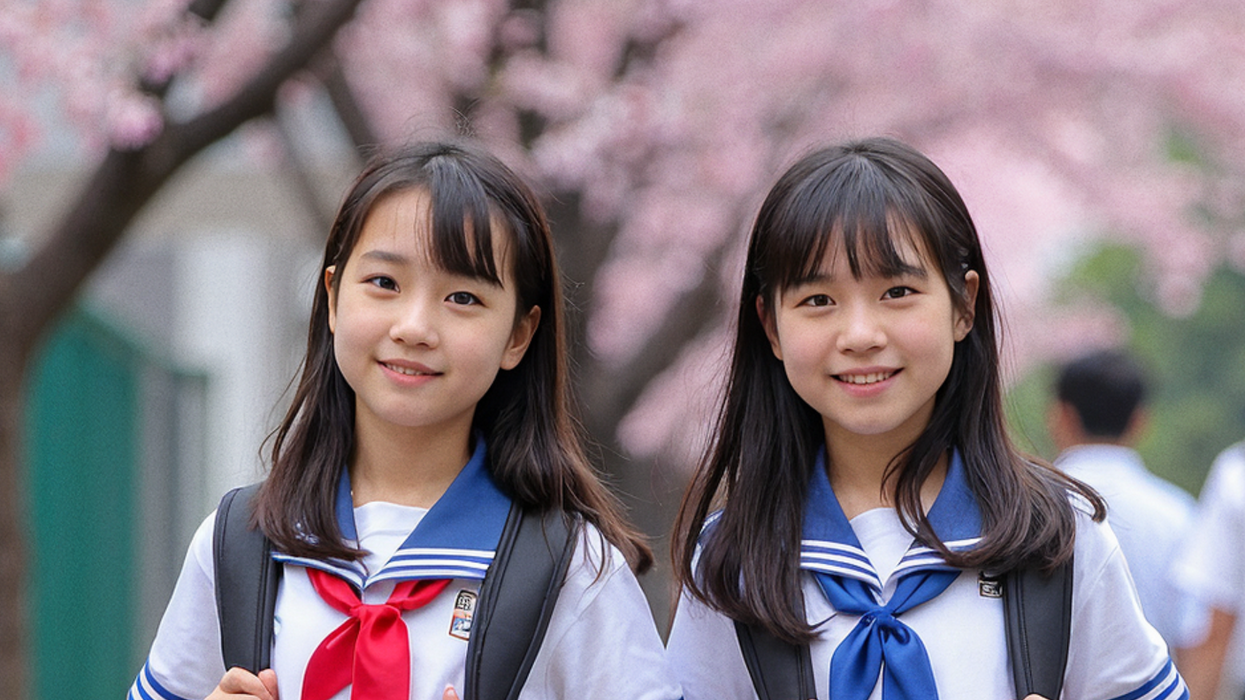Twins typically fascinate us because of their incredible similarities. But sometimes, what makes identical twins truly intriguing are their surprising differences. A recent study in Science Direct highlighted exactly this, following the astonishing reunion of identical twin sisters separated as toddlers and raised in completely different cultures.
Born in South Korea in 1974, these twin sisters spent their first two years together until tragedy struck—they were accidentally separated at a busy market. Despite the family’s desperate search, only one twin could be located. While she remained with her family in Korea, the other was adopted and raised by a couple in the United States, unaware she even had a twin, let alone other siblings.
A childhood split across two worlds
The twin who grew up in America only discovered her true identity decades later, in 2018, after submitting her DNA to a South Korean program designed to reunite lost family members. It was then she learned of her identical twin sister, along with additional siblings.

After their reunion, scientists eagerly examined the sisters, fascinated by the question at the heart of many twin studies: how much do environment and upbringing influence our personalities, mental health, and intelligence?
Tests quickly revealed something extraordinary: despite their identical genetics, the twins had startlingly different IQ scores. The twin raised in America scored a full 16 points lower than her sister raised in Korea—a difference far greater than typical IQ gaps of identical twins, which rarely exceed 7 points.
"The twins showed substantial differences in cognitive abilities that have been linked to strong genetic influence," one researcher observed. Researchers speculated that multiple childhood concussions sustained by the US-raised twin could have played a role in her lower IQ score.
@lilibet.casas My girls in first grade were assigned different teachers. We were told this was a good idea since they were/are so codependent with one another. I debated trying to get them in the same class, but in the end, it was a great choice. They gained a little more independence from eachother & were so excited to see one another at the end of the day! #identicaltwins #twins #twinsisters #fyp #socute #sahmlife #twinsoftiktok #f4f #babies ♬ original sound - Lilibet.Casas
Shared traits despite stark differences
Yet, surprisingly, despite this stark intellectual difference and drastically distinct childhood environments, the twins shared remarkably similar personality traits. "Notable is that both twins are distinctively high on conscientiousness—indicating that both are purposeful, well-organized, dutiful, and achievement-striving," the researcher wrote.
The study went deeper, noting the Korean-raised twin grew up in a nurturing, loving environment, while the American-raised twin faced considerable hardships with her adoptive family. Remarkably, both sisters displayed similar resilience, scoring closely on measures of self-esteem and mental health.
@seoulsistersemandm Replying to @kylee.tullos Part 2, meeting our twin on our 36th birthday. #reunited #separatedatbirth #twinsisters #KoreanAmericanAdoptee #SeoulSisters #EmandM #EunandMoon ♬ original sound - Emily and Molly
Ultimately, this compelling study reinforces how identical twins can be strikingly similar and astonishingly different simultaneously. Their story continues to intrigue researchers, illuminating the endless complexity within the ongoing debate of nature versus nurture.
This article originally appeared last year.


















 An envelope filled with cashCanva
An envelope filled with cashCanva Gif of someone saying "Oh, you
Gif of someone saying "Oh, you
 A flight attendant closes the overhead binCanva
A flight attendant closes the overhead binCanva Gif of Larry David trying to put his luggage in overhead compartment via
Gif of Larry David trying to put his luggage in overhead compartment via 
 Dog owner pets their dogCanva
Dog owner pets their dogCanva Gif of a sad looking pug via
Gif of a sad looking pug via 
 A confident woman gives a speech in front of a large crowdCanva
A confident woman gives a speech in front of a large crowdCanva

 A anxiety-free man embracing the dayCanva
A anxiety-free man embracing the dayCanva Two friends embrace each other while laughingCanva
Two friends embrace each other while laughingCanva A woman takes a relaxing bubble bathCanva
A woman takes a relaxing bubble bathCanva
 The original photo.Image from “
The original photo.Image from “ Photoshopped for Mexico Image from
Photoshopped for Mexico Image from  Photoshopped for ArgentinaImage from “
Photoshopped for ArgentinaImage from “ Photoshopped for USAImage from “
Photoshopped for USAImage from “ Photoshopped for SyriaImage from “
Photoshopped for SyriaImage from “ Photoshopped for SerbiaImage from “
Photoshopped for SerbiaImage from “ Photoshopped for UkraineImage from “
Photoshopped for UkraineImage from “ Photoshopped for Philippines Image from “
Photoshopped for Philippines Image from “ Photoshopped for RomaniaImage from “
Photoshopped for RomaniaImage from “ Photoshopped for South AfricaImage from “
Photoshopped for South AfricaImage from “ Photoshopped for NetherlandsImage from “
Photoshopped for NetherlandsImage from “ Photoshopped for EgyptImage from “
Photoshopped for EgyptImage from “ Photoshopped for UKImage from “
Photoshopped for UKImage from “ Photoshopped for ChinaImage from “
Photoshopped for ChinaImage from “ Photoshopped for VenezualaImage from “
Photoshopped for VenezualaImage from “ Photoshopped for SpainImage from “
Photoshopped for SpainImage from “ Photoshopped for ItalyImage from “
Photoshopped for ItalyImage from “ Photoshopped for PeruImage from “
Photoshopped for PeruImage from “ Photoshopped for ColombiaImage from “
Photoshopped for ColombiaImage from “
 Stressed out woman at workCanva
Stressed out woman at workCanva Gif of office worker trying to get computer to work faster via
Gif of office worker trying to get computer to work faster via  Female employee celebrates at workCanva
Female employee celebrates at workCanva